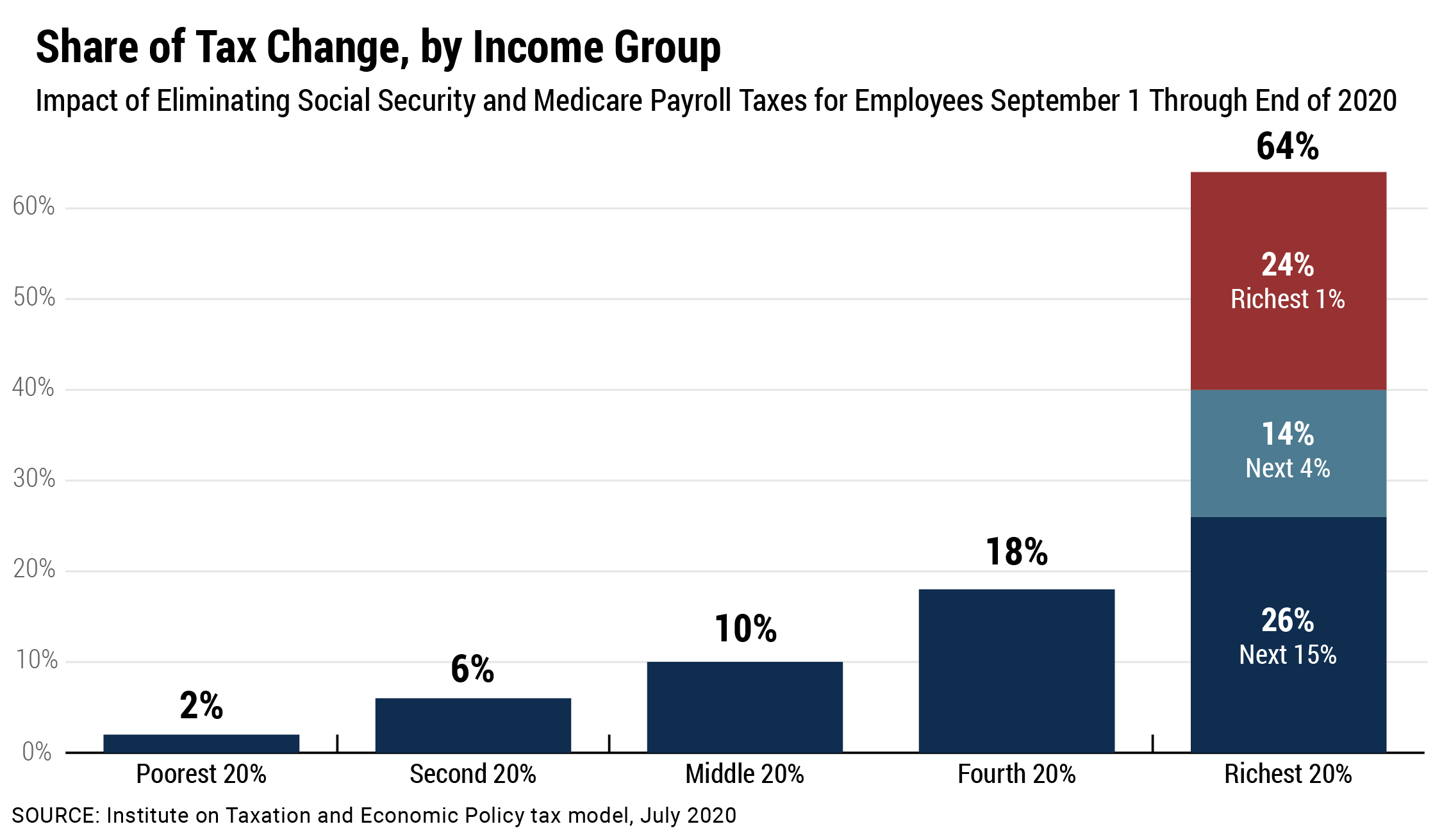July 21, 2020
July 21, 2020
More than 30 million Americans are currently not working. The unemployment rate is above 11 percent even after some rehiring in late spring. There is no end in sight to the deadly pandemic. State and local governments face collapsing revenue and may push the unemployment rate still higher by laying off workers. The President is, by all reports, ready to allow unemployment benefits to drop precipitously and to allow layoffs of public employees. Instead of helping the jobless, the President proposes a payroll tax break for those who have jobs.
While the White House hasn’t clarified what it is proposing, we know that a payroll tax cut would not be well-targeted. In a new report, ITEP estimates the effects of suspending Social Security and Medicare payroll taxes for employees and employers from September 1 through the end of the year. We find that 64 percent of the benefits would go to the richest 20 percent of Americans while 24 percent of the benefits would go to the richest 1 percent.
Social Security is funded by a tax of 12.4 percent of earned income up to a maximum of $137,700 for 2020. Employees pay half (6.2 percent) and employers pay the other half. Medicare is funded by a tax of 2.9 percent on earnings with no maximum, also evenly split between employers and employees.
ITEP’s analysis assumes that Trump’s proposal would suspend both the employee and employer sides of payroll taxes. The break for employers particularly rewards the rich, who own most businesses. Because the break on payroll taxes would be in effect only for a few months, it is unlikely that workers would be able to successfully compel employers to pass the tax savings onto them. The break on employer payroll taxes would simply be a windfall to businesses and, ultimately, those who own them.
Let’s be clear about what the President is suggesting–cutting benefits for the unemployed while nominally giving a tax cut to those with jobs and steering the ultimate benefits to wealthy business owners and shareholders.



